Turkey's Syria offensive enters 2nd month with slow progress
Operation Olive Branch continues
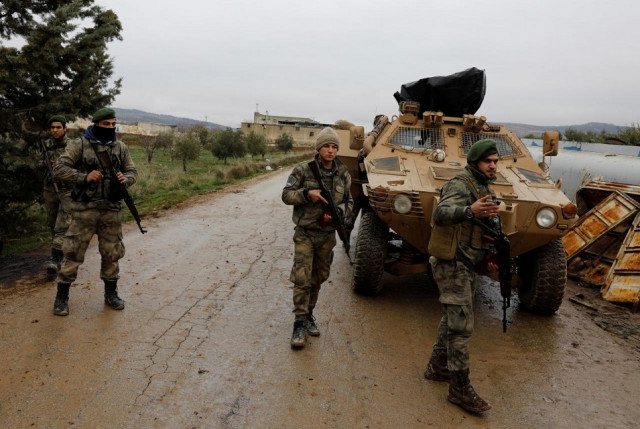
Members of Turkey-backed Free Syrian Army police forces secure the road as they escort a convoy near Azaz, Syria January 26, 2018. PHOTO: REUTERS
Ankara on January 20 launched a cross-border air and ground operation against the People's Protection Units (YPG) supporting Syrian rebels in the Afrin region.
Turkey views the YPG as a Syrian offshoot of the outlawed Kurdistan Workers' Party (PKK), which has been waging an insurgency against the Turkish state since 1984.
Erdogan says Turkey has launched new ground operation in Syria
Although Turkish President Recep Tayyip Erdogan has repeatedly hailed the operation's success, analysts argue Ankara's forces have made slow progress.
The Turkish army has said 32 Turkish military personnel have been killed in the process.
According to the Syrian Observatory for Human Rights monitor, Syrian rebels and Turkish forces have taken 35 villages since the start of the operation, but most border Afrin.
Meanwhile, Turkish security expert Abdullah Agar said the "Olive Branch" operation forces captured around 300 square kilometres (120 square miles) of territory.
Since the operation began, the Observatory said 238 Olive Branch fighters (including Turkish soldiers) and 197 YPG fighters have been killed along with 94 civilians.
Ankara strongly denies that there have been civilian casualties, saying its armed forces are showing utmost care not to harm civilians.
Jana Jabbour, professor of Political Science at Sciences Po university in Paris, said the Turks were "struggling to move forward" because of the "organisation of the Kurdish YPG forces and their combativeness".
She added it was important to distinguish between the political rhetoric, "even political propaganda", and the reality on the ground.
On the ground, Turkish fighting was now focused around the area of Arab Wiran in northeast Afrin, the UK-based Observatory said.
If this is captured, pro-Ankara forces would control 50 continuous kilometres (31 miles) on Afrin's northern border with Turkey.
The operation is likely to be further complicated after the Syrian state news agency SANA on Monday said pro-government forces were expected to enter Afrin to counter the Turkish offensive.
In response, Erdogan told Russian counterpart Vladimir Putin in a phone call there would be "consequences" if the regime entered the region, according to Turkish media.
Jabbour said she doubted the regime would move into Afrin because "behind the scenes Turkish forces and Syrian forces are talking to each other", adding Russia would not allow the regime to enter direct confrontation with Turkey.
Turkey views the YPG as a terrorist offshoot of the outlawed Kurdistan Workers' Party (PKK), blacklisted by Ankara, the United States and the European Union.
The operation has further strained relations with the United States, which has given weaponry to the YPG as part of its fight against the Islamic State extremist group in Syria.
Washington has called on Turkey to show restraint and has said the offensive risked becoming a distraction from the fight against jihadists in Syria.
The EU on Friday joined the call for Turkey to act with restraint, telling Ankara its efforts should focus on the Islamic State group.
Erdogan has, however, threatened to expand the offensive to the YPG-held town of Manbij.
After US Secretary of State Rex Tillerson's visit to Ankara last week, the two sides agreed to work together in Syria and set up working groups to address issues including Manbij where there are US military forces, which Tillerson said was a 'priority'.
In addition to its disagreements with Washington, Turkey must take into account the interests of Russia, a key ally of Damascus, which controls northern Syrian airspace.
Moscow may have given the green light to the offensive, but it has previously closed the airspace to Turkish jets after a Russian plane was shot down in an area of north Syria where Turkish military observers were expected to enforce a de-escalation zone.
Turkey's Erdogan slams US, Israel for intervention in internal affairs of Pakistan
According to Jabbour, the "government and Erdogan are raising their voices and developing a rhetoric that is supposed to boost the Turks' national pride and bring people together around the government".
All of the Turkish political parties represented in parliament support the operation except the pro-Kurdish Peoples' Democratic Party (HDP). The interior ministry on Monday said 786 people had been detained since the operation started including 85 people accused of organising protests against the offensive.
Some 587 of those were held over spreading "terror propaganda" on social media as opponents say the authorities target those criticising the operation.

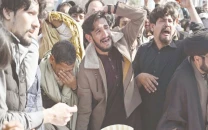

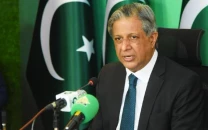
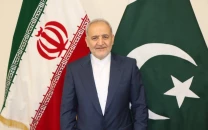
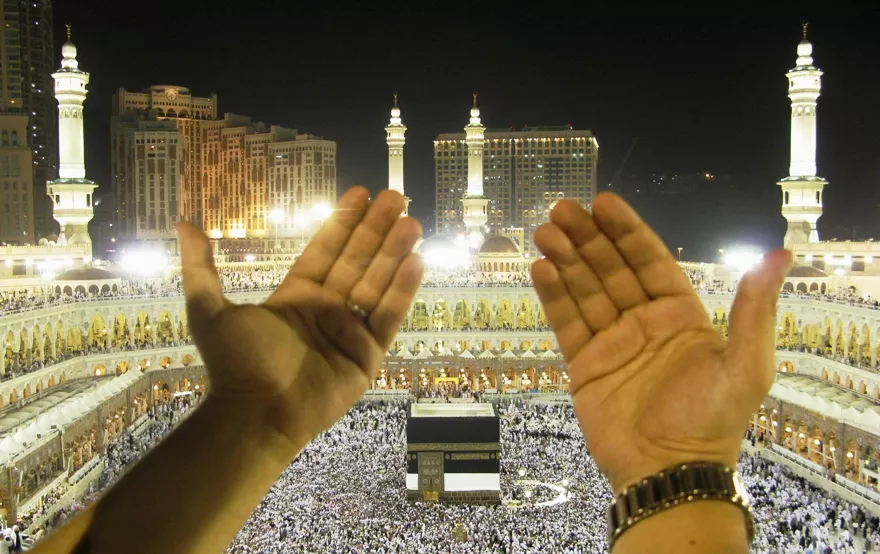
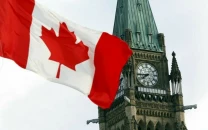












COMMENTS
Comments are moderated and generally will be posted if they are on-topic and not abusive.
For more information, please see our Comments FAQ